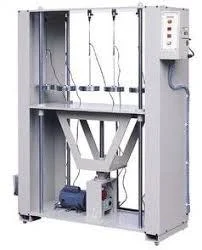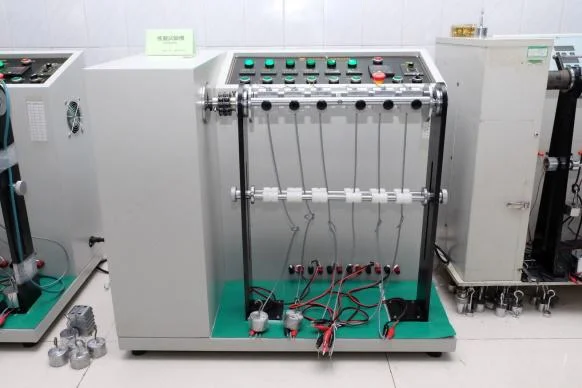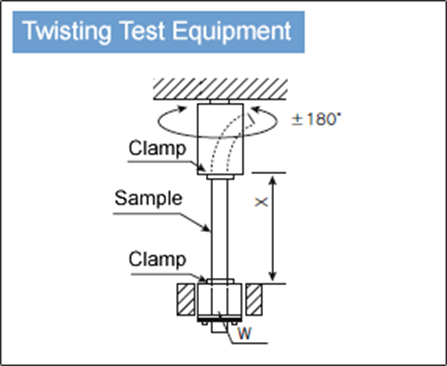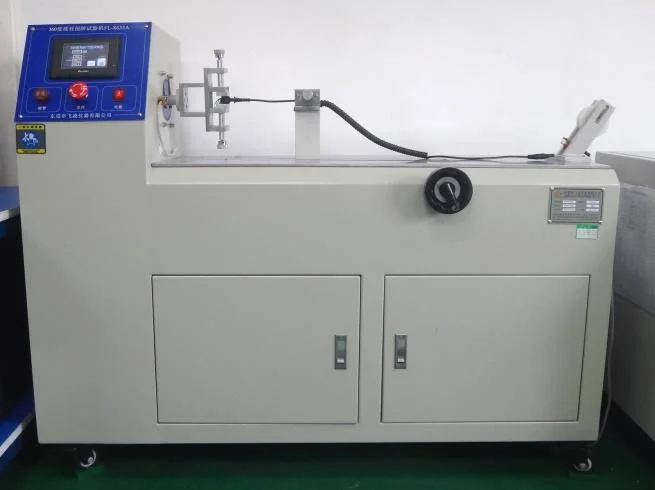Key Mechanical Tests for Custom Cables
As with all products, many electric cable assemblies are made to certain specifications and are designed for particular tasks. In many industrial and commercial applications cables are exposed to constant movement during their operation. Understanding exactly what will be required from a cable during it's lifespan enables designers and system builders to build a long lasting cable.
As more attention is being paid to the critical role cables play in electronic equipment, especially in high-end machines, various tests for stability and endurance for cable performance are becoming a routine in a quality cable manufacturer.
There are several mechanical tests that designers of custom cable manufacturers face on a daily basis; this blog highlights the following:
Tensile Strength or Pull
Bending
Twisting
Temperature
Now, let’s take a look at each.
Tensile (aka Pull) Test
- Tensile strength and pull - Tests how far compounds can be stretched before failing, as well as their ability to return to form after being stretched. The test also tries to determine electrical continuity, or loss of it, by the use of a force gauge with applied loads along the cable and connector axis.
- Pulling Apparatus - Tensile test machine is configured to individual testing needs with proper apparatus. During a pull test, a sample cable is pulled upward or downward by a load (e.g. 100 N (22.5 lbf )) for a specified time (e.g. 1 hour) or until there’s either a bond failure (e.g., cable jacket being drawn out) or the wire breaks.
Tests are then conducted to include a few inspection points on cables and connectors:
- Damage to cable jacket
- Damage to conductor insulation
- Opening of seals or potting materials on connectors
- Electrical discontinuities, etc.
Bending Test
- Bending apparatus - Tests the cable’s ability to resist being bent to its intended bending radius in flexible applications before damage to the cable occurs both in the conductor materials and insulation/jacket compounds. Both loading (e.g. 300-400Nm) and bending radius (e.g. +/-120 degrees ) are specified in the apparatus.
After the test, the cables and connectors are inspected for:
- Damage to over-mold and strain relief
- Damage to conductor wire resulting in defective electrical performance
- Effect on overall electrical characteristics, etc.
Twisting (aka Torsion) Test
- Torsion apparatus - Tests a cable’s ability to be continually twisted and un-twisted to ensure the subject cables retain critical operating performance characteristics in applications such as robots. Torsional force is set up @200 Nm and torsional angle @ ± 180° (depending on clamping length) to apply to the cables under test.
Temperature Test
This is a test of the resistance of cables to crushing and cracking under pressure and extreme temperature. Cables under test are subjected to extreme temperature changes (e.g. between -15 and 85° C), and in substances such air, oil and other fluids to speed up aging to determine if a jacket compound can withstand being exposed to these substances over extended periods of time.
An environmental stress screen chamber (ESS) is used to test various types of materials for their tolerances of heat, cold, dry, and humidity. During the test, the chemical properties between the insulation, shielding, and plastic jacket of electric cables are exposed to extreme temperature (hot or cold) and other environmental factors, such as, UV resistance, humidity, etc.
The test typically cycles through a series of hot and cold temperature with a specified duration at each temperature level. Tests are then conducted to include a few inspection points on cables and connectors, such as:
- Hardening, cracking, peeling of cable jacket
- Leakage and opening of seals or potting materials on connectors
- Change of electrical properties, etc.





